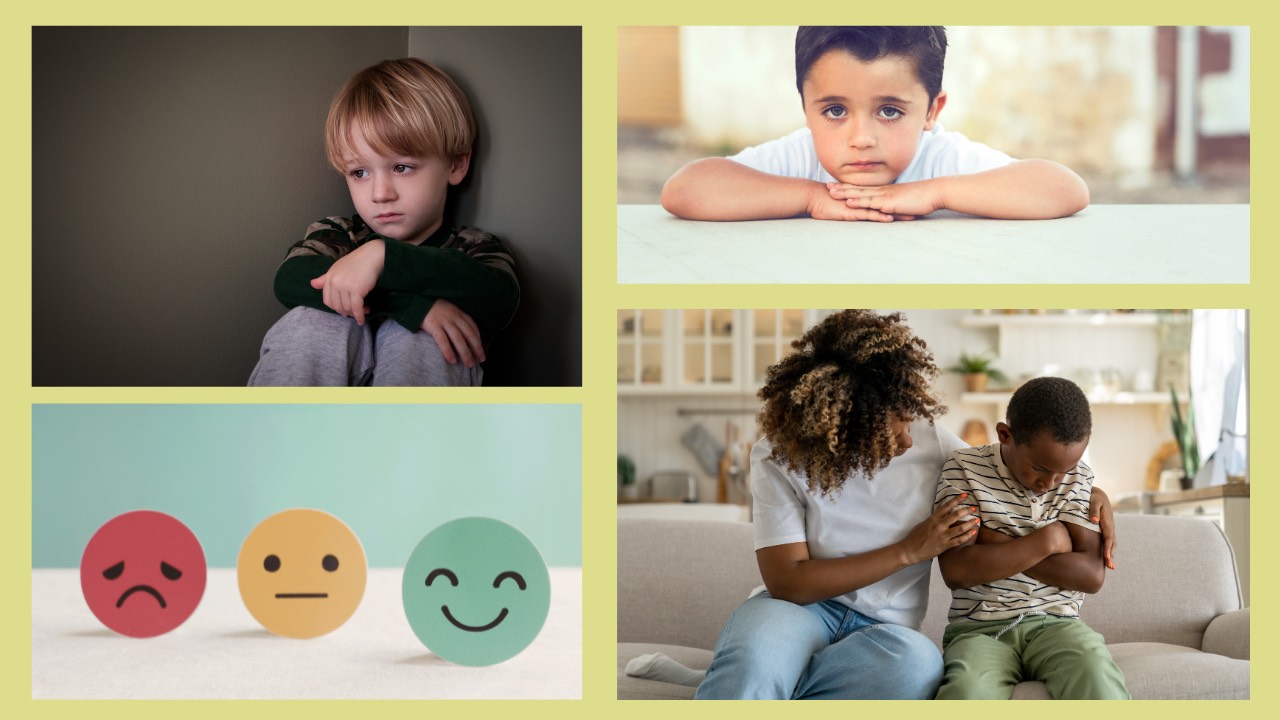
Your child’s smile is still bright. Their laugh is still contagious. But something feels different. Maybe they’ve been pulling away, struggling in school, or their moods are swinging faster than you can keep up. You might wonder if it’s just a phase or if something deeper is going on.
Let’s talk about it. Mental health matters for kids too, not just for adults.
Mental Health vs. Mental Illness
Mental health is about how we think, feel, and act. It shapes how we handle stress, connect with others, and make choices. When a child’s emotions or behaviors start to make daily life harder, it could be a sign of a mental health disorder.
Kids can experience mental health challenges just like adults. Because they are still growing and learning how to manage their feelings, the signs aren’t always what we expect.
The Myth About Kids and Mental Health
It’s easy to believe that children are too young to face serious mental health struggles. But the truth is, they can and they do. Conditions like depression, anxiety, ADHD, and others can show up early. Sometimes the signs are easy to miss because they can look like regular growing pains. Early support can make a big difference.
Common Mental Health Challenges in Children
Depression
A child with depression might seem sad or irritable most of the time. They might stop doing activities they used to enjoy, fall behind in school, or have trouble making friends.
Bipolar Disorder
This condition causes big mood swings, from feeling very high and energetic to very low and withdrawn. The highs can sometimes lead to risky behavior, while the lows may look like deep sadness.
Anxiety Disorders
Feeling nervous is a normal part of growing up, but for some kids, the worry takes over. Anxiety disorders can make it hard for a child to go to school, speak up in class, or join activities they used to enjoy.
ADHD (Attention-deficit/hyperactivity disorder)
Kids with ADHD have trouble sitting still, staying focused, or controlling impulses. This is not about discipline or effort. Their brains are simply wired differently.
Autism Spectrum Disorder (ASD)
Children with autism can have challenges with communication, social skills, or certain behaviors. They may see and experience the world in remarkable ways that deserve support and understanding.
Eating Disorders
Concerns about food, weight, or body image can start earlier than many people realize. These struggles can lead to serious physical and emotional health problems if left unaddressed.
Signs That It Might Be Time to Seek Help
All kids go through ups and downs. It can be hard to tell when something more serious is going on. These signs should not be ignored:
- Sadness or irritability that lasts for two weeks or more
- Pulling away from friends, family, or favorite activities
- Talking about hurting themselves or not wanting to be alive
- Big changes in mood, behavior, or personality
- Intense anger, outbursts, or mood swings
- Trouble sleeping or frequent nightmares
- Changes in eating habits or sudden weight loss
- Frequent stomachaches, headaches, or other physical complaints
- Difficulty focusing or concentrating
- Falling grades or skipping school
If you’re seeing any of these signs, it’s a good idea to reach out for help. Trust your instincts. You know your child better than anyone.
How Treatment Can Help
Having a mental health condition doesn’t mean your child is broken. It means they need some extra support to feel and function better.
Support might look like therapy, school accommodations, family counseling, or sometimes medication. Every child’s needs are different. What matters most is finding a plan that helps them thrive.
Kids are incredibly resilient. With the right tools and encouragement, they can learn how to handle challenges, build strong relationships, and grow into confident, capable adults.
It helps to celebrate the small wins. Progress might come in little steps, and that’s perfectly okay.
Let Go of the Blame
Many parents feel guilty when their child is diagnosed with a mental health condition. It’s important to remember that most mental health disorders have biological causes, like differences in brain chemistry.
You wouldn’t blame yourself if your child developed asthma or needed glasses. Mental health challenges are no different.
What matters is showing up with love, patience, and a willingness to get help. That makes a bigger difference than you might ever realize.
What You Can Do Today
- Talk to your child’s pediatrician and ask for a referral if needed
- Keep notes about any concerns or changes you are noticing
- Be open with your child in a way that fits their age and understanding
- Ask the school about extra resources or support programs
- Reach out to a counselor or parent support group if you need backup
Mental health isn’t about reaching some perfect end point. It’s a journey your child can travel with you by their side. With the right care and support, they can grow into strong, healthy adults. You don’t have to walk this road alone, either. Reach out to your community of school counselors or pediatricians who can provide support and guidance.
Stay connected with news and updates!
Join our mailing list to receive the latest news and updates from our team.
Don't worry, your information will not be shared.
We hate SPAM. We will never sell your information, for any reason.

